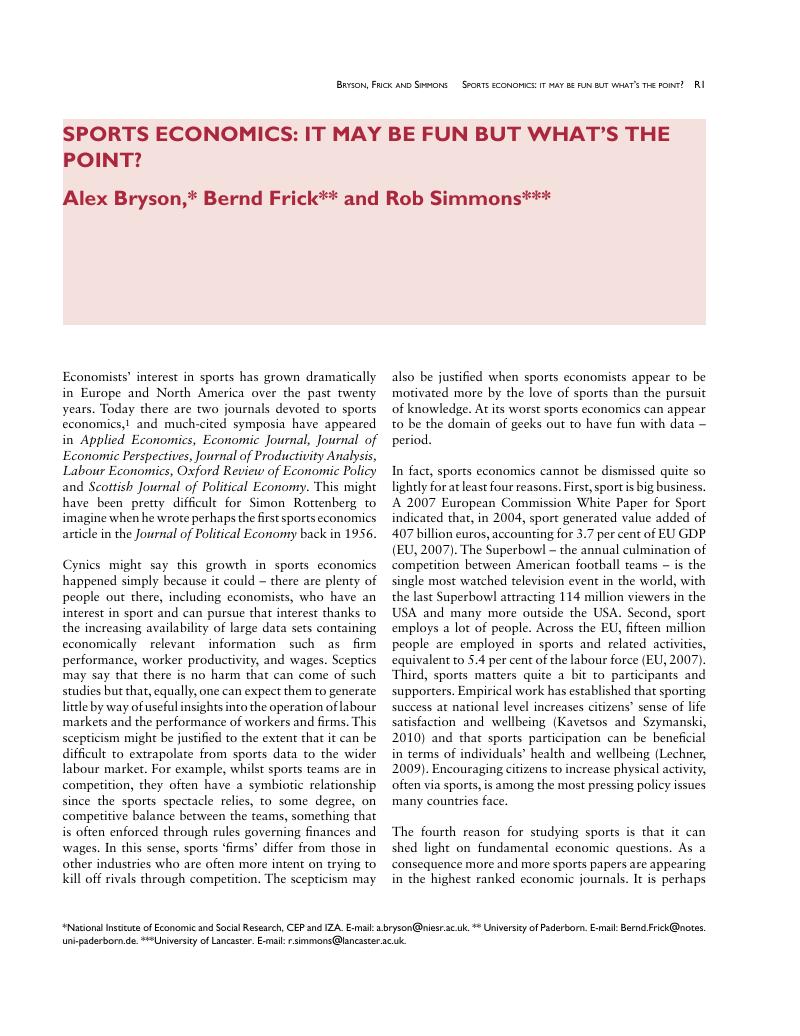Crossref Citations
This article has been cited by the following publications. This list is generated based on data provided by Crossref.
Ribeiro, António S.
and
Lima, Francisco
2019.
Football players’ career and wage profiles.
Applied Economics,
Vol. 51,
Issue. 1,
p.
76.
Burguet, Roberto
and
Sákovics, József
2019.
BIDDING FOR TALENT IN SPORT.
Economic Inquiry,
Vol. 57,
Issue. 1,
p.
85.
Fernández-Villarino, Roberto
and
Domínguez-Gómez, José Andrés
2022.
Corporate Responsibility, Sustainability and Markets.
p.
53.



